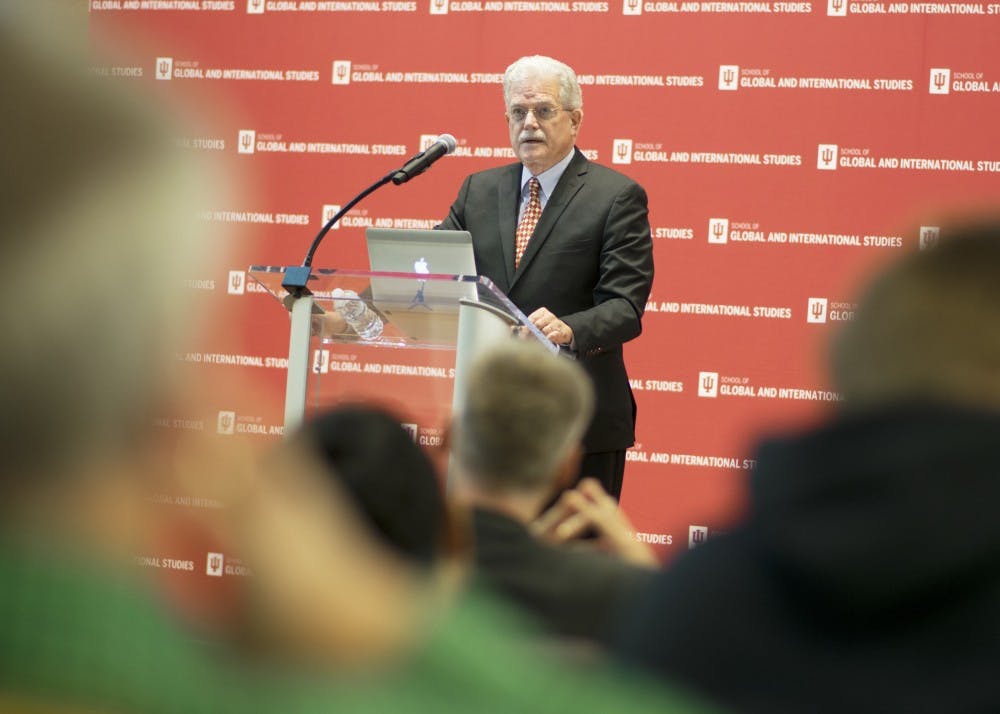Kathleen Stephens, former U.S. ambassador to South Korea, spoke of the challenges and importance of strong Korean democracy on Friday afternoon.
Stephens witnessed Korea’s democratization as a Peace Corps volunteer in the 1970s and served as the ambassador to South Korea from 2008-11, during President Barack Obama’s tenure.
Her talk was part of an all-day event on South Korean politics and policy at the Global and International Studies Building. Lee Feinstein, dean of the School of Global and International Studies, moderated the conversation. He served as the U.S. ambassador to Poland from 2009-12.
“Democracy is challenged worldwide," Feinstein said. "We’re facing our own challenges in America, too."
This theme of the intersection between what it means to be an American democracy and what it means to be a South Korean democracy lasted through the talk.
“I, like others in this room, have been a witness to — and maybe in small ways a participant in — South Korea’s journey over the past 40 years," Stephens said. "It’s a journey, for better or worse, that the U.S. has been heavily involved in."
She said the democratization of South Korea has been a great success that nonetheless faced challenges along the way.
“I lived in an authoritarian Korea, on the countryside,” she said of her time in the Peace Corps. "I was frustrated when I couldn’t get a TIME magazine that didn’t have pages ripped out or blacked out."
She said it was important for Korean youth to get involved in politics, especially in the democracy efforts.
“I think the commitment to strengthening Korea’s democracy and making things better was something that was harnessed then and needs to continue to be harnessed,” she said.
When Feinstein asked Stephens to talk about the strengths and challenges of Korean democracy, she said the consistent peaceful transfer of power every five years has been inspiring.
These transfers of power may have been peaceful, but outcomes for the former leaders were not always the same.
“When I look on Korea's extraordinary achievements, one thing that really saddens me is that no Korean president — democratically elected since 1987 — has been able to leave office and finish his or her life in dignity,” Stephens said.
Feinstein went on to ask about the current tensions on the Korean Peninsula. On this, Stephens said there are two key issues.
“One is the clear resolve of Kim Jung Un to consolidate nuclear capability to reach across the Pacific. The other one is we have a president in Washington who has risen to the bait,” she said.
She said now is the time for Americans to think about our defense and demonstrating commitment to our allies.
Stephens wrapped up this thought by quoting former Secretary of Defense William Perry.
“We must deal with North Korea as it is, not as we want it to be,” he said.
Stephens also took questions from the audience of students and faculty. She spoke of concerns about the sterilization of history not only in South Korea, but across the globe.
She concluded by saying she admires the ability of Koreans to simultaneously honor past generations and put their efforts toward making things right for the next generation.
"I think that’s a great strength of the Korean people," she said.




